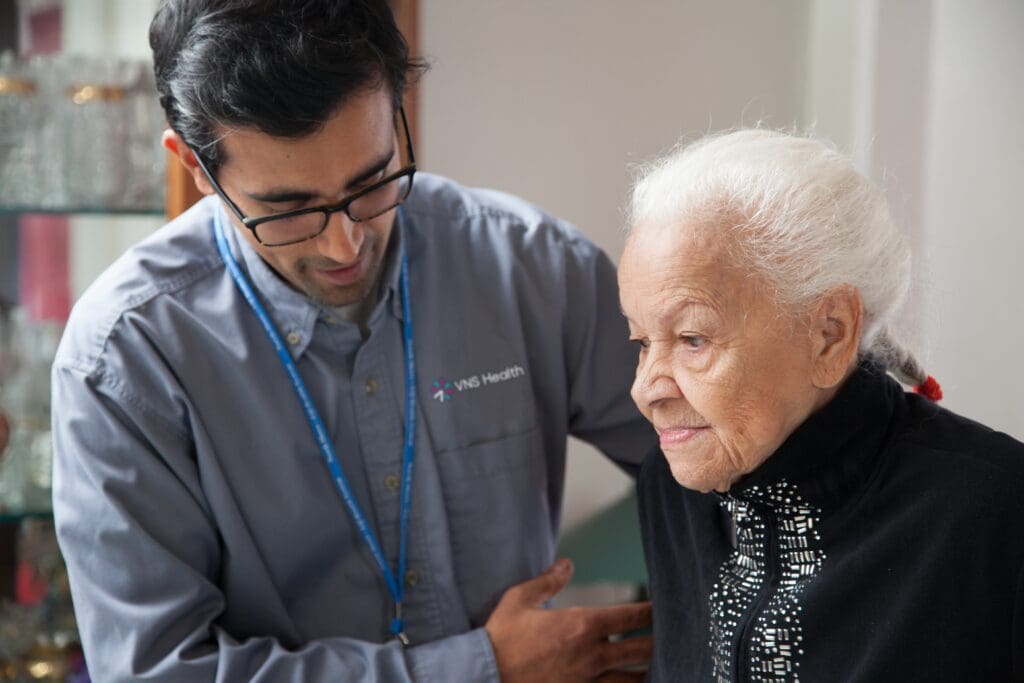Locating the Right Charlotte Care Home: A Guide to Choosing the Best Environment
Locating the Right Charlotte Care Home: A Guide to Choosing the Best Environment
Blog Article
How to Give Meaningful and Personalized Dementia Treatment
The arrangement of personalized and meaningful mental deterioration care requires a nuanced understanding of each person's unique background and preferences. Treatment methods must be tailored to involve the person in means that reverberate with their previous experiences, consequently cultivating emotional connections and boosting general wellness.
Recognizing Mental Deterioration Uniqueness

Treatment providers must evaluate cognitive abilities, emotions, and behavior patterns to produce customized treatment plans. This might include adjusting interaction styles, employing acquainted regimens, and making use of purposeful activities that reverberate with the individual's previous experiences. Involving a person with an enthusiasm for songs with music activities may evoke favorable memories and boost psychological health.
Moreover, recognizing uniqueness cultivates a caring approach that appreciates the self-respect and freedom of those dealing with mental deterioration. It motivates caretakers to pay attention actively, observe behavioral cues, and stay adaptable in their caregiving techniques (dementia care charlotte). By focusing on individuality, caregivers can not only enhance the high quality of life for those with mental deterioration yet additionally develop an extra profound understanding of their distinct perspectives, ultimately bring about extra reliable and compassionate care
Building Depend On and Rapport
Developing trust fund and relationship is basic in mental deterioration treatment, as it creates a supportive and safe atmosphere for individuals impacted by the condition. Building these links needs consistent, caring communications that focus on the requirements and sensations of the person. Caregivers must approach communications with compassion, recognizing the one-of-a-kind difficulties faced by those with dementia, including amnesia, complication, and psychological distress.
Caretakers need to make use of clear, straightforward language and non-verbal cues to communicate understanding and assistance. Active paying attention shows regard and validation, allowing individuals to reveal themselves without concern of judgment.
Familiarity with everyday activities and caretakers advertises a feeling of security, allowing people to feel even more at simplicity. By doing so, caretakers enhance the individual's identification, promoting self-respect and respect, ultimately leading to more powerful, a lot more meaningful connections in the context of dementia treatment.
Tailoring Tasks and Engagement
Involving individuals with dementia via tailored activities can considerably improve their lifestyle and foster a deeper connection in between caretakers and those in their treatment. Customization is important, as it acknowledges the one-of-a-kind histories, passions, and capacities of each individual. Tasks must be developed to stimulate cognitive features, promote physical activity, and motivate social interaction, all while continuing to be pleasurable and meeting.
To tailor activities successfully, it is important to analyze the person's preferences and cognitive abilities. As an example, some might locate happiness in gardening, while others may appreciate songs or art. Basic, acquainted tasks can evoke favorable memories and offer a feeling of accomplishment. Additionally, incorporating aspects of regimen can supply comfort and stability, permitting people to engage with tasks extra confidently.
Caregivers can boost involvement by participating along with the people, promoting an interactive and helpful atmosphere. It is additionally vital to continue to be flexible and flexible, Homepage readjusting tasks as needed based upon the person's energy levels and mood. Ultimately, meaningful engagement via tailored activities not just boosts people with dementia yet also enhances the caretaker connection, promoting common pleasure and understanding.
Efficient Interaction Techniques
Reliable communication is vital in dementia care, as it promotes a feeling of connection and understanding in between caregivers and individuals experiencing cognitive decline. Using effective interaction methods can considerably improve the quality of interactions and decrease aggravation for both parties.
To start with, utilizing simple, clear language is necessary. Familiar words and short sentences aid individuals understand and react better. In addition, maintaining a tranquility and positive tone can create a comforting environment, which is critical for individuals that might really feel distressed or overwhelmed.
Non-verbal interaction plays a considerable duty. Caregivers ought to take note of body language, faces, and motions, as these signs can usually communicate even more than words - memory care facility charlotte. Establishing eye contact and making use of gentle touch can likewise reinforce links and share compassion
Energetic listening is another essential element. Caretakers need to listen, permitting people to express themselves totally, even if their speech is fragmented or reference vague. This lionizes and motivates more open interaction.
Last but not least, verifying experiences and feelings is important. Acknowledging emotions, no matter their basis in fact, can offer convenience and strengthen the caregiver-individual connection, promoting an extra helpful atmosphere.
Sustaining Household Participation
Family participation plays a considerable function in the overall care and assistance of individuals with dementia. Engaging relative creates a collaborative atmosphere that boosts the quality of treatment, fosters emotional links, and makes sure that the special requirements of the individual are met. Member of the family often have very useful insights into the individual's background, see this here choices, and actions, which can be essential in creating personalized treatment strategies.

Moreover, member of the family can be motivated to take part in daily care tasks, such as taking part in meaningful conversations or aiding with acquainted routines. This not just aids receive the individual's feeling of identity yet also enhances familial bonds. Inevitably, by fostering a comprehensive approach that values family contributions, care suppliers can enhance the general experience for both individuals with dementia and their loved ones.
Conclusion
In conclusion, providing individualized and significant dementia treatment demands a thorough understanding of each person's one-of-a-kind history and choices. Establishing trust fund and connection via compassionate communications is crucial for producing a risk-free environment. Customizing activities to resonate with individual interests enhances emotional well-being and promotes self-respect. Reliable interaction techniques even more sustain this procedure, while actively including family participants enhances the caregiving experience and promotes much deeper connections. Collectively, these strategies add to boosted top quality of life for individuals with mental deterioration.
The arrangement of meaningful and individualized dementia treatment needs a nuanced understanding of each individual's one-of-a-kind background and preferences. By doing so, caregivers reinforce the person's identity, promoting self-respect and respect, inevitably leading to more powerful, more purposeful connections in the context of mental deterioration treatment.
Involving people with dementia with tailored activities can substantially improve their high quality of life and cultivate a deeper connection in between caregivers and those in their treatment.Family participation plays a considerable function in the total treatment and support of people with dementia. Inevitably, by promoting a comprehensive technique that values family contributions, care companies can boost the general experience for both people with mental deterioration and their liked ones.
Report this page